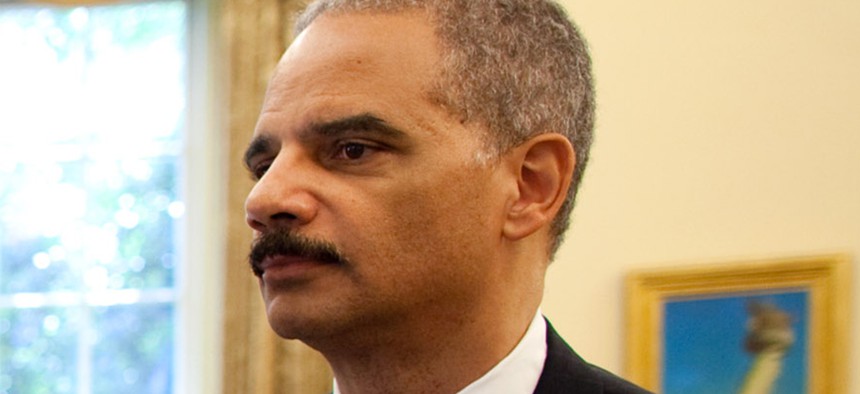Why the Justice Department Chose These 6 Cities for Its Police-Community Relations Pilot

Pete Souza/White House file photo
The government hopes they can serve as a blueprint for others across the country.
The latest incident in Ferguson, Missouri, in which a gunman shot two policemen right outside the city's police department amid protests, showed that distrust between the police and the community remains severe, despite the resignation of Police Chief Tom Jackson.
On Thursday, Attorney General Eric Holder condemned the shootings, calling the attacker a "damn punk." In the same press conference, Holder announced that six cities have been chosen as pilot sites for the National Initiative for building Community Trust and Justice—a program with the mission to strengthen relations between the police and the communities they serve. The list includes Birmingham, Alabama; Stockton, California; Gary, Indiana; Minneapolis, Minnesota; Pittsburgh, Pennsylvania; and Fort Worth, Texas.
Map of where the two officers were shot last night during a protest at the Ferguson PD http://t.co/criwACtMOt pic.twitter.com/90sLzZB5aS
— Jon Passantino (@passantino) March 12, 2015These particular cities were chosen for a mix of reasons, says Nancy La Vigne, director of the Urban Institute's Justice Policy Center, which is one of the government's partners in the pilot. Some of the determining factors includedgeographical location, level of diversity, police department size, economic conditions, crime rates, levels of police violence, and history of social tensions. Of course, the other huge factor was the willingness of each city to participate.
"Overall, they were selected to be, in research terms—'generalizable,' " says La Vigne, meaning pilot organizers hope the findings from this sample of cities can serve as a blueprint for others across the country.
In the next three years, the government and its partners will collect data from each city on police use of force, stop-and-frisk-type policies, and citizen complaints against police. They will also interview the communities most impacted by the policing.
"We'll learn, in each of the sites, the degree to which these methods work, how they work, why they don't work," says La Vigne. Depending on what they find, the government and its partners will offer both general and site-specific recommendations on how to repair the police-community relationship.





